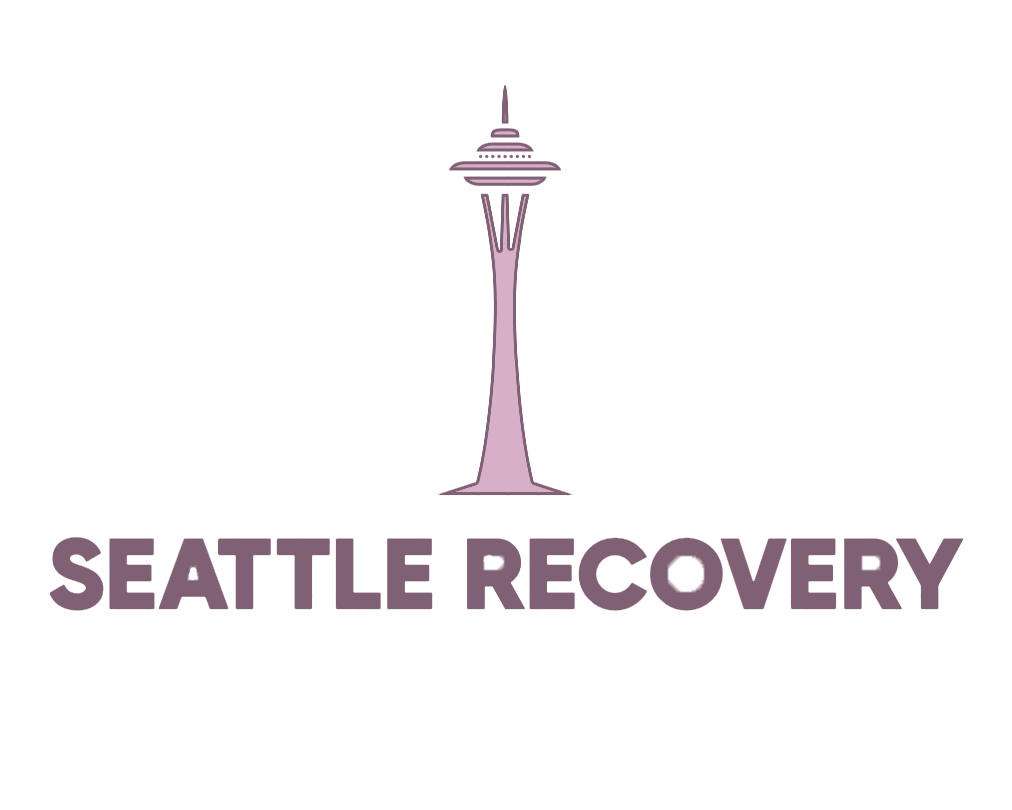
Exploring Rehab Facilities in Seattle Washington
Seattle Recovery stands at the forefront, offering extensive services across Seattle, Tacoma, Bellevue, and several other locations, for those grappling with substance use and complex mental health issues. Its holistic approach intertwines body, mind, and spirit, aiming for a comprehensive healing journey.
Substance Use Disorder Treatment
Among the myriad challenges individuals face, substance use disorders rank prominently. Seattle Recovery’s nuanced understanding of this malaise has birthed a diverse treatment portfolio, addressing addictions from alcohol to designer drugs and beyond. Personalized treatment plans, developed in collaboration with nationally accredited providers, underscore the organization’s commitment to tailored care.
Drug Specific Treatment Approaches
Particularly noteworthy is Seattle Recovery’s adept handling of various substance dependencies such as opioids, methamphetamine, cocaine, and prescription drugs. Each program, whether for detox, residential treatment, or outpatient care, is meticulously crafted to address the unique facets of each substance’s grip on the individual.
Mental Health Disorders
With a keen eye on the intricate dance between mental health and substance use disorders, Seattle Recovery champions the treatment of dual diagnosis patients. From anxiety and depression to more complex conditions such as borderline personality disorder and schizophrenia, the organization’s multi-faceted approach ensures comprehensive care.
Dual Diagnosis & Co-Occurring Disorders
Emphasizing the importance of treating co-occurring disorders, Seattle Recovery’s programs are designed to heal not just the addiction but also the underlying mental health issues, offering a path to sustainable recovery.
Clinical Services
The backbone of Seattle Recovery’s success is its wide array of clinical services. Cognitive Behavioral Therapy (CBT), Dialectical Behavioral Therapy (DBT), and Eye Movement Desensitization and Reprocessing (EMDR) are just a few of the evidence-based methodologies employed to foster recovery.
Experiential and Family Therapy
Beyond individual therapy, the organization appreciates the healing power of group dynamics. Experiential therapy and family support programs work in concert to mend the broader network of relationships affected by mental health and substance use disorders.
Supportive Recovery Environment
Seattle Recovery’s facilities are designed to offer a safe and nurturing environment for healing. From comfortable living conditions to serene outdoor spaces, every aspect of the facility is aimed at supporting the individual’s journey to recovery.
Insurance and Accessibility
Understanding the financial hurdles often associated with recovery, Seattle Recovery collaborates with most major insurance providers. This effort to make treatment more accessible reflects the organization’s dedication to serving a broad community, ensuring no one is left behind due to financial constraints.
Holistic Approach to Recovery
At the heart of Seattle Recovery’s philosophy lies the belief in a holistic approach to treatment. By addressing the physical, emotional, and spiritual needs of each individual, the organization fosters a well-rounded recovery process.
Innovative Treatment Modalities
Seattle Recovery continuously seeks to innovate and improve its treatment modalities. Incorporating the latest in therapy research and techniques, the organization remains at the cutting edge of addiction and mental health treatment.
- Detox Programs
- Residential Treatment
- Partial Hospitalization Programs
- Intensive Outpatient Programs
- Transitional Living Programs
Community Engagement
Recovery is not just about the individual; it’s about rebuilding connections with the community. Seattle Recovery takes pride in its alumni and mentoring programs, which empower those in recovery to give back and support others on their journey.
By fostering a strong network of support and embracing a comprehensive approach to treatment, Seattle Recovery stands as a beacon of hope for those navigating the challenges of mental health and substance use disorders in Seattle Washington.

What are some common concerns people have when considering rehab, and how does Seattle Recovery address them?
Many individuals feel apprehensive about the unknown aspects of rehab, including fears surrounding withdrawal symptoms, concerns about life post-treatment, and the stigma of seeking help. Seattle Recovery addresses these concerns by providing a compassionate, comprehensive approach to treatment that includes evidence-based therapies, a supportive community, and a strong aftercare plan to support individuals in their journey towards recovery. Our emphasis on personalized care ensures that every person’s unique needs and concerns are met, making the process as comfortable and effective as possible.
What are some common misconceptions about rehab facilities, and what is the reality at Seattle Recovery?
A prevalent misconception is that rehab is a one-size-fits-all solution. However, at Seattle Recovery, we understand that recovery is a highly personal journey. We offer a range of services from detox to outpatient programs, ensuring our approach is tailored to fit the specific needs and circumstances of each individual. Another myth is that rehab is akin to being in a hospital. In contrast, our facilities are designed to feel more like a home than a clinical setting, providing a comfortable environment conducive to healing and recovery.
Can you share advanced insights on the holistic approach to recovery practiced at Seattle Recovery?
Our holistic approach transcends traditional treatment modalities by integrating physical, emotional, and spiritual healing practices. This means that in addition to medical and psychological treatments, we incorporate therapies such as mindfulness, yoga, and nutritional counseling to support overall wellness. This approach acknowledges that recovery is not just about addressing the addiction but also nurturing the whole person to promote lasting healing. By focusing on every aspect of well-being, we prepare our clients for a successful recovery rooted in deep personal growth.
How does Seattle Recovery tailor its treatment plans to address various substance addictions and mental health disorders?
Seattle Recovery recognizes the complexity of addiction and mental health issues, offering specialized treatment plans that are meticulously designed to address the individual’s specific challenges. This begins with a comprehensive assessment to understand the nuances of every person’s situation. Depending on the substance and co-occurring mental health disorders, we might incorporate a combination of medication-assisted treatment, CBT, DBT, EMDR, and other evidence-based practices. Our multidisciplinary team works collaboratively to ensure the treatment plan is holistic, dynamic, and adaptable, reflecting the individual’s progress and evolving needs.
What makes the recovery environment at Seattle Recovery supportive and conducive to healing?
Seattle Recovery’s environment is deliberately designed to provide comfort, safety, and a sense of community. From the serene outdoor spaces to the welcoming living areas, every aspect of our facilities is aimed at fostering a sense of belonging and peace. Additionally, our supportive staff and community ethos encourage open communication and shared experiences, creating a strong network of support. This nurturing environment not only aids in reducing stress and anxiety but also significantly enhances the recovery process by making individuals feel understood, valued, and motivated.
How does Seattle Recovery work with insurance providers to make treatment accessible?
Understanding that financial barriers can deter individuals from seeking necessary treatment, Seattle Recovery works closely with most major insurance providers to make our programs as accessible as possible. Our dedicated administrative team assists clients in navigating their insurance benefits, verifying coverage, and exploring all potential options for minimizing out-of-pocket costs. This commitment to accessibility ensures that more individuals can avail themselves of the life-changing treatment and support we offer, without the added stress of financial strain.
Can you explain the role of community engagement in the recovery process at Seattle Recovery?
Community engagement plays a pivotal role in the recovery journey at Seattle Recovery. Beyond the structured treatment programs, we foster a vibrant community through alumni networks, mentoring programs, and social activities that provide ongoing support and connection. This sense of community not only combats isolation but also empowers individuals by involving them in a larger recovery dialogue. Engaging with peers who have navigated similar paths fosters mutual understanding and encouragement, demonstrating that recovery is not only about personal triumph but also about contributing positively to the lives of others.
Resources
- Substance Abuse and Mental Health Services Administration (SAMHSA) – SAMHSA provides resources and treatment options for substance use disorders and mental health issues.
- American Psychiatric Association – The American Psychiatric Association offers information and support for individuals dealing with mental health disorders.
- National Alliance on Mental Illness (NAMI) – NAMI is a grassroots mental health organization providing education, support, and advocacy for individuals and families affected by mental illness.
- National Institutes of Health (NIH) – The NIH is the nation’s medical research agency, supporting scientific studies related to mental health and substance use disorders.
- Centers for Disease Control and Prevention (CDC) – The CDC offers information and resources on mental health, including data on mental health disorders and treatment options.






